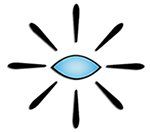Signs It's Time to Visit Your Eye Doctor
- By By Admin
- •
- 06 Sep, 2018
- •
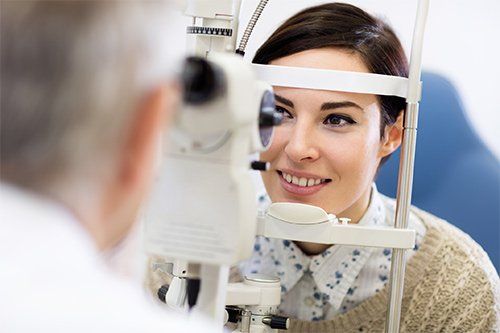
You Have Eye Strain
You Haven't Been to the Eye Doctor in Years
- Poor eye muscle health
- High blood pressure
- Age-related vision loss
- Age-related eye diseases
You See Floaters or Blurry Spots
You Have Trouble Driving at Night

You might have noticed that as the temperatures outside drops, eye irritation can be on the rise. There are a few reasons you might be suffering more with a sandy feeling, burning, watering, or even blurry vision.
1. Heating
Whether forced air heat at home, wood heat at home, or a heater blowing in a car or airplane, all of these things can dry out our natural tear film and cause symptoms.
Treatment can be as simple as using an artificial tear drop when symptoms arise. The more commonly available artificial tears are Refresh, Systane, Genteal and Theratears.
I usually advise patients to avoid drops that “get the red out”, as they can make the dryness worse.
2. Allergies
Fall allergies or even year-round allergies can make the eyes itch, and even make dryness of the eyes worse. Many patients assume that because they are taking an oral allergy medication that it should be enough to take care of eye allergies also. This is not always the case, and sometimes an eye drop antihistamine or stronger drop is needed.
As always, if your eyes are bothering you and home remedies are not working you should have an examination.
dy content of your post goes here. To edit this text, click on it and delete this default text and start typing your own (or paste your own from a different source).To control the color or size of this text, please change the global colors or text size under the Design section from the left menu of the editor.
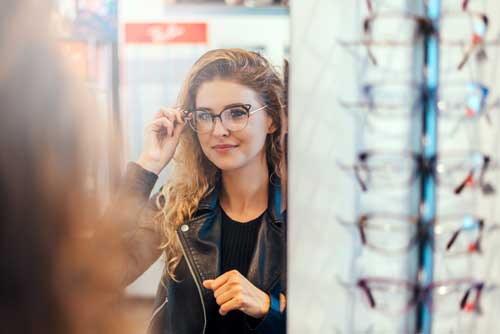
From reading and working on a computer to watching television and making memories that will stay with you forever, the importance of healthy eyes and good quality vision should be easy to see. Unfortunately, many people have to deal with issues that affect their ability to see in a clear and comfortable manner.
Six out of ten people require eyeglasses or contact lenses to correct their vision. Therefore, you should not feel alone if your eye doctor believes you need vision correction. Thankfully, you can choose eyeglasses that not only improve your vision but also complement your appearance and style. Here are a few tips to help you choose the right eyeglass frames.
1. Consider Your Lifestyle
Your lifestyle matters when you are selecting the right frames and lenses for your eyeglasses.
If you spend a lot of time exercising, playing sports, or working a job that is physically demanding, your frames should be lightweight, but durable. Metal may be the most durable option, but it is also the heaviest material. Today, manufacturers have created metal frames that are both durable and lighter in weight.
For the best of both worlds, consider Flexon or titanium frames. Flexon is not only strong and lighter in weight, but it is also resistant to rust and corrosion. If you spend periods of time outdoors in the various weather conditions, this material may be the best option for your frames since moisture will not become an issue.
Titanium is comparable to steel, so you know titanium frames will be incredibly durable. Of course, titanium frames are available in a variety of colors, patterns, and textures, which helps improve the look and style of your glasses.
Finally, nylon is a material that you should consider. Nylon frames are strong, lightweight, and hypoallergenic, even though the material is actually a type of plastic.
2. Consider your Face Shape
When it comes to how frames look on your face, one size does not fit all. To find frames that fit comfortably and look great, you need to take the shape of your face into consideration.
Round faces are curved, lacking any edges and angles. The right frames can add much-needed definition to your round face. Choose frames that are slightly angular or rectangular.
If you have a square-shaped face with strong forehead and jawline, you should choose frames that tone down these angles and edges. Opt for minimalistic, rimless, rounded eyeglass frames.
Finding frames that complement an oval face is a bit easier, since you have both angles and curves. In most cases, any style of frame will work well on oval faces.
If you have a heart-shaped face, you will have higher cheekbones, a wider forehead, and a narrow chin. Consider rimless, rounder frames to balance out your facial proportions.
3. Consider the Colors
With the right material and the right shape, your eyeglasses will be comfortable and appealing. However, focusing on the actual color of your eyeglass frames is also important especially if you want to enhance your appearance.
Choosing a frame color does not have to be challenging if you focus on the actual color and tone of your skin.
Browns, dark beige and yellow colors, and even an olive green shade look best on skin with warm bronze or gold undertones.
If you have a cooler complexion with blue or pink undertones, choose darker frames. Dark browns, blues, greens, purples, pinks, and grays work best on these skin tones.
Choosing eyeglass frames may seem impossible because of all the options available. Fortunately, help is available. To correct your vision in a complementary, stylish, and effective manner, contact Douglas H. Lanning today.
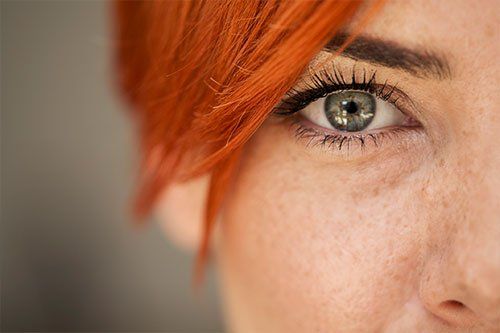
Prevent Tired Eyes
Blink Throughout the Day
Eat a Nutrient Rich Diet
Exercise Daily
Get Outside
Wear Your Eyeglasses And Contacts

Cataracts
Glaucoma
Skin Cancer
Ocular Melanoma
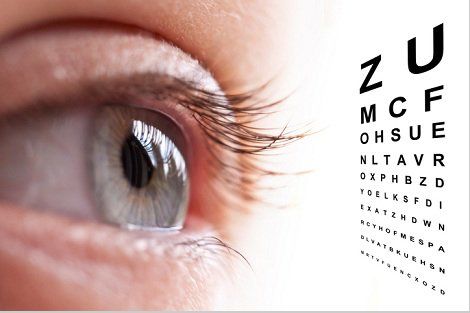
Healthy habits start at home, and the activities you do each day can make a significant impact on the way your body develops. When you think about maintaining your health, you might not consider your eyes first. The truth is that because you use them so often, they should be at the forefront of your health plan.
Are you looking for new ways to take care of your eyes? These ways do not have to be complicated. This guide will help you start some new habits today.
Take Screen Breaks
Your eyes have a difficult time responding to hours on end of screens, whether they are phones, televisions or computers. Headaches and eyestrain are commonly associated with staring at screens for long periods of time. If you work at a desk, this can be a major problem.
The break professionals advise is known as the 20-20-20 rule. For every 20 minutes of working at a screen, take 20 seconds to look away from a screen at something that is about 20 feet away.
Wear Sunglasses
Yes, sunglasses serve another purpose besides giving you a sense of style. They are also good for your eyes, protecting them from the harsh ultraviolet rays of the sun. You should wear the glasses during times when your eyes might be subjected to UV light, like during an outing with the family or a trip to a sporting event.
Additionally, wearing sunglasses could prevent you from experiencing cataracts or macular degeneration, which is a major cause of blindness. It can also prevent pterygium, which can cause astigmatism. Blocking those UV rays can have positive effects in the long run.
Take Care of Your Contact Lenses
Contact lenses require a certain amount of care for continued daily use. Without proper care, your lenses could give you an infection or, in some rare cases, lead to blindness.
For example, you should never sleep in your contact lenses. Lack of oxygen and growth of bacteria behind the lens can lead to a nasty eye infection. When you allow oxygen to get to the eye, it decreases the chance of infection.
Additionally, you should always rinse lenses in solution rather than in water. As you clean, use your fingers to rub the lenses with the liquid to remove debris that you might have caught during the day.
Stay Hydrated
You might not realize the impact staying well hydrated can have on your eye health. Exercising, traveling and drinking alcohol and coffee can all contribute to dehydration and thus dry eyes with irritating symptoms.
Your eyes need to stay hydrated so that they can effectively eliminate debris from the eyes thanks to tears. If it hurts to blink, you are already dehydrated.
Turn Down Brightness in the Evening
Have you ever heard of blue light? It's the light that commonly comes off your television, laptop screen or phone. While blue light has benefits, especially during the day, it may actually interfere with your eyes if you aren't getting a break. In fact, blue light could age your eyes well beyond their years.
Remove Eye Makeup Before Bed
Makeup can clog the pores around your eyes, and it can also work its way into the eyes and cause irritation. Infection may follow. You don't want a nasty infection to spread into your eye and affect your vision.
Come in for Regular Examinations
Even healthy habits cannot make up for lack of regular examinations for your eyes. This is the only time somebody is looking into your eyes for physical damage in addition to changes in sight.
Douglas H. Lanning, O.D. is ready to see you. Make an appointment today to make the best decision for your eye health.
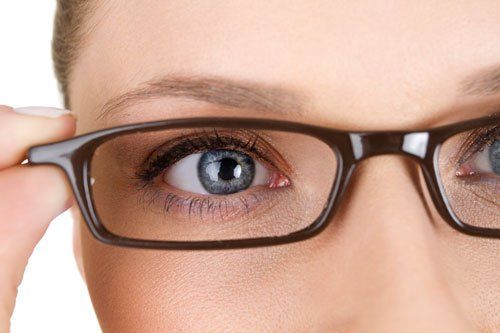
1. Your Toddler Gets Too Close to Their Activities
2. Your Toddler Often Rubs Their Eyes
3. Your Toddler Squints
4. Your Toddler Can't Locate Faraway Items
5. You or Your Significant Other Wears Glasses
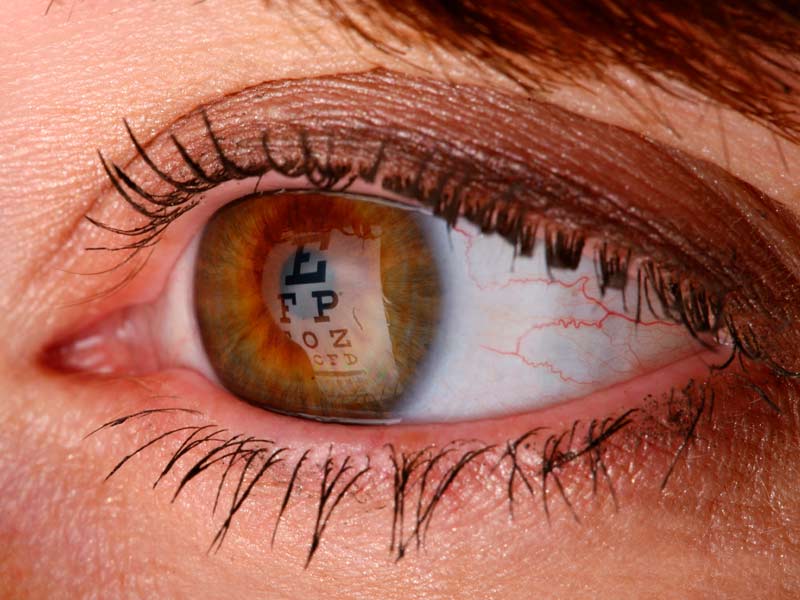
Dry Eyes
Presbyopia
Age-Related Macular Degeneration
Cataracts
Glaucoma
